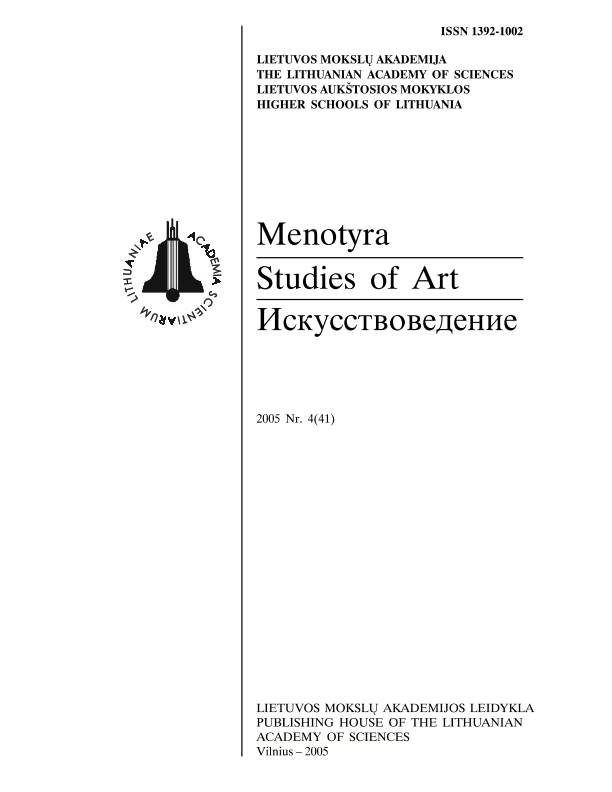Lenkų teatras Vilniuje vadovaujant (1906-1910) Nunai Młodziejowskai-Szczurkiewiczowai
On theatre in Vilnius. The Polish theatre under the guidance of Nuna Młodziejowska-Szczurkiewiczowa
Author(s): Mirosława KozłowskaSubject(s): Theatre, Dance, Performing Arts, Cultural history, 19th Century
Published by: Lietuvos mokslų akademijos leidykla
Summary/Abstract: Nuna (Maria Antonina) Młodziejowska was born into a family of landlords on November 11th, 1884 in Zhitomir. She was educated in Cracow and took A. Baranieki's higher level courses for women. She studied performance art with Wanda Siemaszkowa in Cracow, and later in the drama class at Warsaw's music association. In 1906 she received financial resources and became in charge of the Polish theatre in Vilnius. She led Vilnius' stage for four seasons, officially until February 10th, 1910. The performances were held in the theatre (in the city hall) or in the Vilnius town hall. The press often emphasized that the Polish theatre, especially attending Polish plays, became a patriotic and civil duty (the theatre did not have its own building). Młodziejowska decided to remind the audience in Vilnius the very existence of Polish classics, or to produce these classics for the first time, as well as to introduce modern Polish and foreign dramaturgy to Vilnius' audience. Yet after the first euphoric wave difficult months began, the attendance went down. To keep the audience interested, Młodziejowska had to compromise and adjust the repertoire, to produce farces and light comedies. From the city she rented an exhibition pavilion in the Bernardinai Garden near the Vilnelė, and renovated it in the first half of 1907. The theatre began its work on June 12th of that year. The intention was to present a lighter repertoire which would appeal to the general audience. The most important premiere in the first months of the Polish theatre was A. Mickevičius' "Dziady", a play that was performed on stage for the first tune during the Russian occupation, on December 8th 1906, and directed by J. Popławski. The first four scenes (shortened, as thought appropriate by censorship) from Wyspiański's play written in 1901 were performed. J. Słowacki's dramas "Baladyna", "Horsztynski" and "Mendowe" were also produced, as well as certainly the most important play "Lilla Veneda" (premiered on June 12th, 1909), staged by Ferdinand Ruszczyc. Młodziejowska did not abandon her ambitions to create a serious theatre in Vilnius, but due to the lack of audience and financial support her efforts did not produce the anticipated results. On March 13th, 1910, a respectful farewell was bid to Nuna Młodziejowska.
Journal: Menotyra
- Issue Year: 2005
- Issue No: 4(41)
- Page Range: 21-26
- Page Count: 6
- Language: Lithuanian

